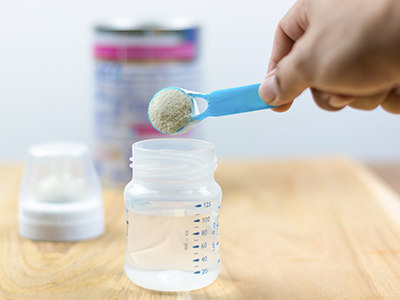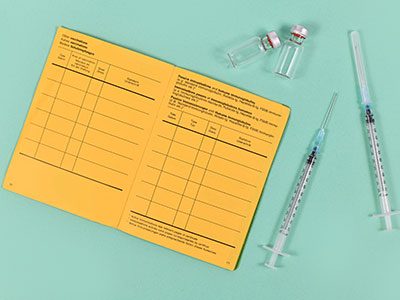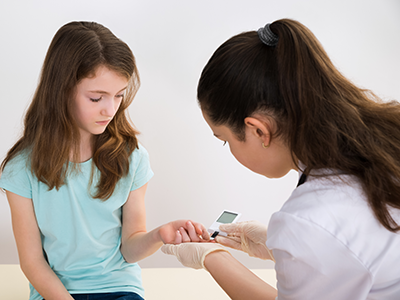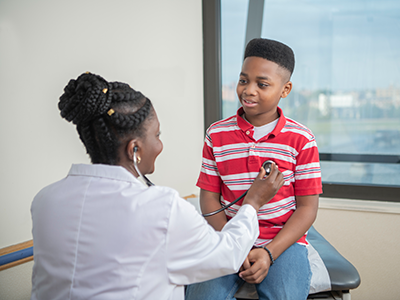As teenagers begin the transition from pediatric to adult care, they need to learn how to advocate for their own health—it’s a vital part of their growth and development.
“As an adolescent health specialist physician, I strongly encourage teens to advocate for themselves during medical appointments,” says Anisha Abraham, MD. “It’s crucial for them to understand how to navigate health care and communicate their concerns directly to providers.”
While it may seem young to some, many pediatricians recommend that children begin taking a more active role in communicating with healthcare providers as early as 13 years old.
And if your adolescent is heading off to college in the fall, spring is an ideal time to discuss this transition. “With the new academic year approaching, it’s important for teens to become more independent in managing their medical care and taking responsibility for their well-being,” says Dr. Abraham.
Encourage them to take an active role in their health with these tips.
- Educate them. Understanding their health is the first step towards advocating for themselves. Teach your teenager about their medical conditions, medications and overall health. Show them how to fill a prescription, use the patient portal, ask their doctor questions and make appointments on their own.
- Role-play. Practice conversations with healthcare providers through role-playing scenarios. This can help your teenager feel more comfortable and prepared for real-life interactions.
- Encourage questions. Encourage your teenager to ask questions and seek clarification during medical appointments. Let them know that it’s okay to ask for more information if they don’t understand something.
- Support independence. Gradually allow your teenager to take more responsibility for their health decisions and appointments. This can include messaging the provider through the patient portal or speaking to the doctor without a parent in the room.
Most pediatricians have a patient confidentiality policy and are generally obligated to keep teens’ health information confidential, except a legal or ethical reason, such as suspected abuse or imminent danger.
Having your teenager take control of their health is a crucial developmental step that can lead to improved health outcomes as an adult. With your help, your teen will build the confidence to ask questions, seek clarification and make informed decisions about their health for years to come.
 https://riseandshine.childrensnational.org/wp-content/uploads/2026/01/boy-flexing-after-vaccine-feature.jpg
300
400
Rise and Shine
https://riseandshine.childrensnational.org/wp-content/uploads/2017/11/childrens_riseandshine_logo.jpg
Rise and Shine2026-01-20 16:52:102026-01-20 16:52:10What parents should know about childhood vaccines
https://riseandshine.childrensnational.org/wp-content/uploads/2026/01/boy-flexing-after-vaccine-feature.jpg
300
400
Rise and Shine
https://riseandshine.childrensnational.org/wp-content/uploads/2017/11/childrens_riseandshine_logo.jpg
Rise and Shine2026-01-20 16:52:102026-01-20 16:52:10What parents should know about childhood vaccines





















Leave a Comment
Want to join the discussion?Feel free to contribute!